
Many control product manufacturers offer these downloadable ‘EDS files’ for peripheral equipment, but what exactly is an EDS, and how can they aid in the…
Many control product manufacturers offer these downloadable ‘EDS files’ for peripheral equipment, but what exactly is an EDS, and how can they aid in the development of a project?
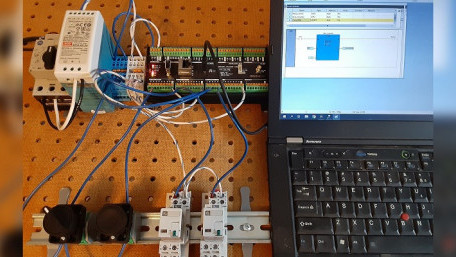
Following the release of the official Arduino PLC IDE, this tutorial will introduce programming and understanding of the…
Following the release of the official Arduino PLC IDE, this tutorial will introduce programming and understanding of the function blocks common to all IEC 61131 languages, starting with bit commands, timers, and counters.
We know that servo motors are found inside machines that rely on precise motion with feedback to verify proper operation,…
We know that servo motors are found inside machines that rely on precise motion with feedback to verify proper operation, but how do they work, and what makes them different from any other kind of motor?
Coil, field winding, rotor, stator, eddy current… When it comes to motors, there are numerous terms that describe the…
Coil, field winding, rotor, stator, eddy current… When it comes to motors, there are numerous terms that describe the theory of operation, but what is inside a 3-phase motor? Take a look, and learn how they work.
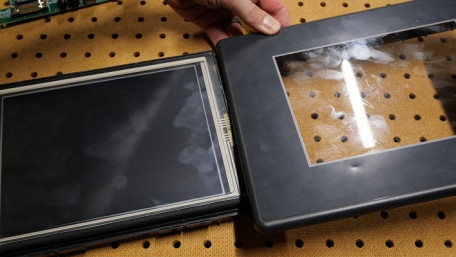
Human-machine interfaces, or HMIs, provide visual process data and allow access to process parameters and diagnostics…
Human-machine interfaces, or HMIs, provide visual process data and allow access to process parameters and diagnostics information. What’s inside these touchscreen displays, and how do they actually work?
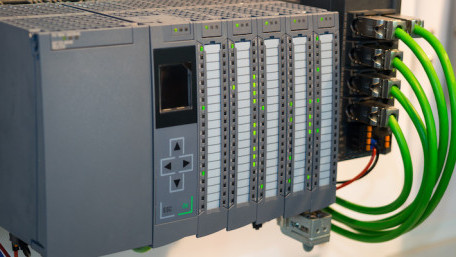
Learn how to make complex calculations for validating data easily with the STD instruction, and learn how to display…
Learn how to make complex calculations for validating data easily with the STD instruction, and learn how to display array sizes programmatically with the SIZE instruction.
Air power drives a lot of modern equipment. Robot grippers, ejectors, actuators, and rotary tables are just a few of the…
Air power drives a lot of modern equipment. Robot grippers, ejectors, actuators, and rotary tables are just a few of the devices controlled by air. What’s inside those banks of solenoid valves, and how do they work?
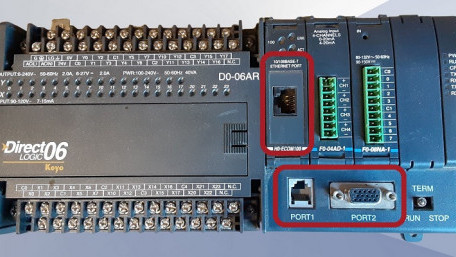
Industrial communication channels often contain terms such as ‘Modbus over RS485’ or ‘CIP Safety over Ethernet’.…
Industrial communication channels often contain terms such as ‘Modbus over RS485’ or ‘CIP Safety over Ethernet’. What does it mean to send one network over another, and how does it work to your advantage?
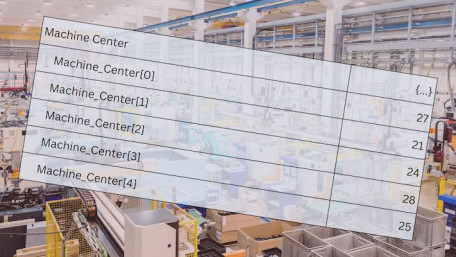
Learn how to streamline your ladder logic by searching and sorting arrays with the FSC and SRT instructions in the…
Learn how to streamline your ladder logic by searching and sorting arrays with the FSC and SRT instructions in the Rockwell (Allen-Bradley) Studio 5000 programming software.
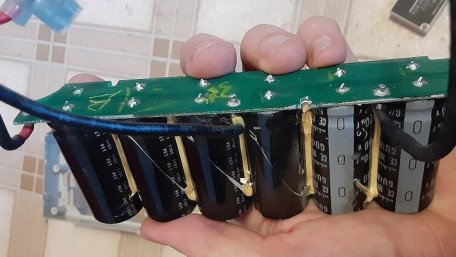
Variable frequency drive units can be found inside tons of control cabinets, but what happens if you disassemble one to…
Variable frequency drive units can be found inside tons of control cabinets, but what happens if you disassemble one to see what’s inside and how it works? We did just that. The results might surprise you.
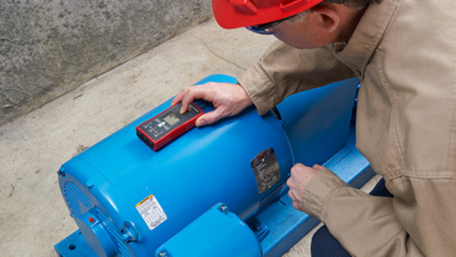
Connecting a new motor without knowing the phase rotation of the electrical supply can cause damage to expensive…
Connecting a new motor without knowing the phase rotation of the electrical supply can cause damage to expensive equipment. By using a 3-phase rotation meter, you can save yourself time and money.
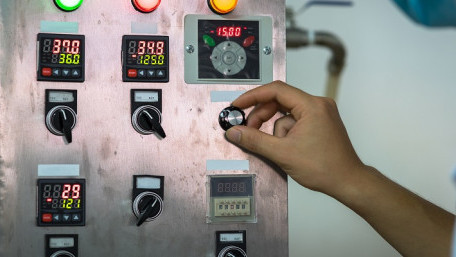
With precise control abilities to manage speed, torque, and direction, variable frequency drives remain one of the most…
With precise control abilities to manage speed, torque, and direction, variable frequency drives remain one of the most common methods of driving 3-phase industrial motors. Below, we introduce a few leading VFD manufacturers.
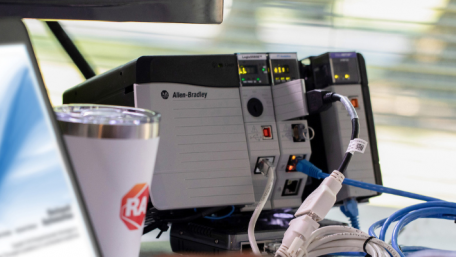
Arrays can streamline data storage and math operations, but they can be difficult to understand for a beginning…
Arrays can streamline data storage and math operations, but they can be difficult to understand for a beginning programmer. Learn the background of array instructions in the Rockwell Studio 5000 software.
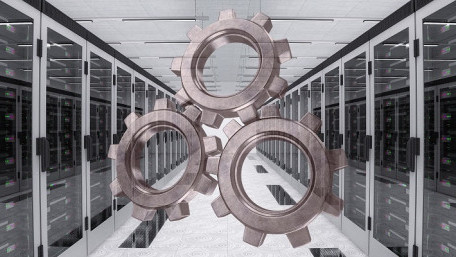
Servers are vital to the flow of information in and around organizations, acting as a hub for information transfer and…
Servers are vital to the flow of information in and around organizations, acting as a hub for information transfer and storage. Learn about the role of servers in industry and the potential challenges that come with maintaining them.
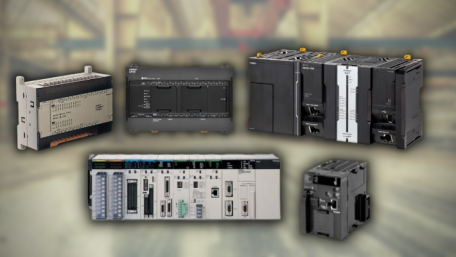
With the first fuzzy logic-based controllers on the market in 1983, learn how the Japanese-born automation company,…
With the first fuzzy logic-based controllers on the market in 1983, learn how the Japanese-born automation company, Omron, adopted fuzzy logic as a basis for the design of its current PLCs.
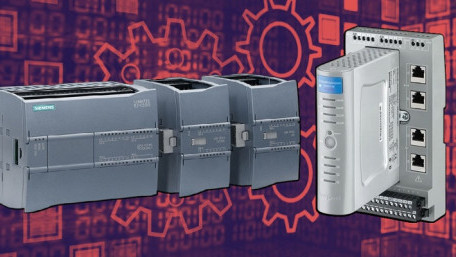
Despite the many overlaps, PLCs and RTUs are two different devices, each with specific suitable applications.
Despite the many overlaps, PLCs and RTUs are two different devices, each with specific suitable applications.
You are bound to encounter two terms associated with sensors and some loads: ‘NPN’ and ‘PNP’. You must understand…
You are bound to encounter two terms associated with sensors and some loads: ‘NPN’ and ‘PNP’. You must understand the relationship between the field device and the control module in order to choose and install components properly when needed.
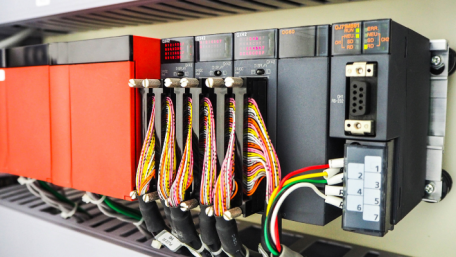
PLC and other automation project software can be easier and more efficient to update and maintain thanks to the…
PLC and other automation project software can be easier and more efficient to update and maintain thanks to the introduction of Git control, already a staple for typical programming of large-scale projects.
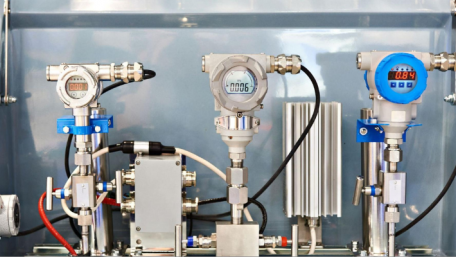
Industrial analog sensor devices primarily use 0-10 volt or 4-20 milliamp. For those mA signals, learn the reasons for…
Industrial analog sensor devices primarily use 0-10 volt or 4-20 milliamp. For those mA signals, learn the reasons for why the lower and upper limit standards were determined as 4 mA and 20 mA.
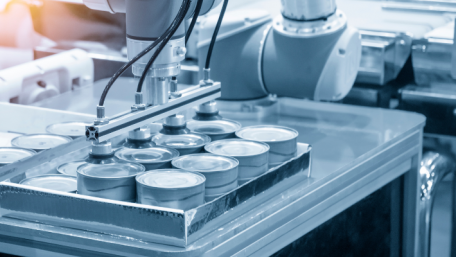
Humidity control is vital in many industrial applications. We'll take a look at nine different humidity measurement…
Humidity control is vital in many industrial applications. We'll take a look at nine different humidity measurement technologies, how they are used, and discuss the difference between relative humidity and dew point.
